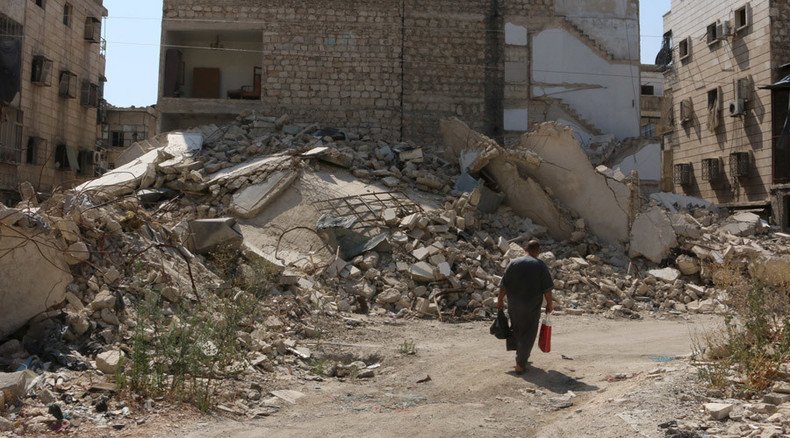79% of refugees fleeing explosive violence turned away by UK

Only 21 percent of those seeking to live in Britain after fleeing conflict-ridden states where the use of explosive weapons is rife are granted asylum, a leading think tank says.
As the global refugee crisis rages on, Action on Armed Violence (AOAV) warns that thousands of people fleeing conflict abroad who seek safety and security in Britain are being turned away.
AOAV Director of Policy and Investigations Iain Overton has conducted extensive research into the impact of explosive weapons. Between 2011 and 2014, almost 150,000 deaths and injuries were reported as a result of these weapons worldwide, approximately 80 percent of them civilians.
95% of Syrian #refugees are hosted in just 5 countries. http://t.co/ewejBMygnk#RefugeesWelcome#RefugeeCrisispic.twitter.com/pP0MKaU2Lw
— AmnestyInternational (@amnesty) September 10, 2015Overton’s research reveals casualties were recorded in 92 separate territories and states across the globe. The five most affected states were Iraq (35,959 civilian casualties), Syria (22,574), Pakistan (13,058), Afghanistan (8,686) and Gaza (4,769).
Overton says these states are scourged with violence, and leave citizens under threat of attack by mortars, suicide bombers, aerial bombings and cluster munitions.
Drawing on Home Office data, the think tank estimates Britain received 16.717 asylum applications from the five states most affected by explosive weapons between 2011 and 2013. However, a mere 21 percent of these applications were accepted without the need for appeal.
While roughly 66 percent of Syrians who applied for asylum were successful, only 15 percent of applications from Iraq proved fruitful. Despite the fact Iraq is the most seriously impacted by explosive weaponry, 85 percent of the Iraqis who applied for asylum in the UK were not deemed legitimate refugees.
“These were places where you had a very real chance of being killed by a mortar round or a suicide bomber, an air dropped bomb or a cluster munition,” said Overton.
“Where your home could be blown apart in the blink of an eye. Where your family life could be shredded and broken in an instant. Where all that you held close and loved dearly could be crushed and smashed, crumpled and burnt.”
Why are so many people leaving #Syria? Devastation caused by explosive weapons is one reason: https://t.co/EBCG2q4ET8#refugeeswelcome
— AOAV (@AOAV) September 7, 2015On Wednesday, European Commission (EC) president Jean-Claude Juncker announced a scheme to relocate 160,000 asylum seekers between European countries.
British Prime Minister David Cameron had repeatedly said the UK will opt out of emergency quotas designed to distribute refugees across the continent.
However, on Thursday Downing Street conceded that British taxpayers will likely face a bill of £90 million (US$138.8 million) to relocate asylum seekers. Although Britain is exempt from the scheme as a result of European treaty opt outs, the government will still be required to contribute financially to the scheme.
A proportion of the €1.04 billion ($1.17 billion) cost for the project will stem from the EU’s Asylum, Migration and Integration Fund. Although Britain already contributes to this, a further €780 million will be needed from national treasuries to fund the scheme.
The refugees selected for “relocation” will originate from Syria, Afghanistan and Eritrea and states taking them will receive €6,000 per person. Meanwhile, Hungary, Greece and Italy will receive €500 per person for transport costs.
In June, Amnesty International accused governments around the world of letting thousands of people fleeing wars in Africa and the Middle East die by failing to provide them with basic protection.
A damning report by the human rights group said world leaders were guilty of neglect as the world faces the “worst refugee crisis since World War II.”












